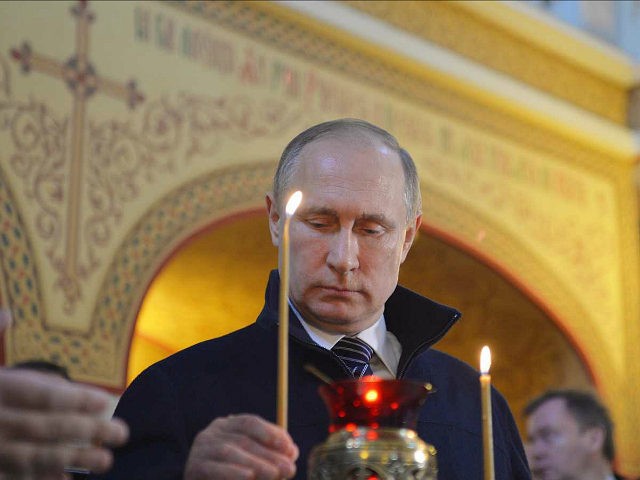Russian President Vladimir Putin signed legislation this week that severely restricts freedom of religion by prohibiting any religious speech or evangelization outside of places of worship.
“This new situation resembles the Soviet Union in 1929. At that time confession of faith was permitted only in church,” said Dr. Hannu Haukka, president of Great Commission Media Ministries, reports National Religious Broadcasters (NRB). “Practically speaking, we are back in the same situation. These anti-terrorist laws are some of the most restrictive laws in post-Soviet history.”
The new law, which goes into effect July 20, is actually an amendment to a package of laws against terrorism and extremism approved by the Russian Parliament’s upper chamber. As a result of the legislation, faith sharing in homes, in the media, online, or any place other than a government recognized church is prohibited.
The measure is expected to especially affect evangelical groups and Jehovah’s Witnesses who often share faith in homes rather than traditional churches.
In a column at the Daily Signal, U.S. Sen. Ben Sasse (R-NE) wrote the new law is “an affront to free people everywhere.”
“We need to begin telling the truth about an increasingly aggressive actor in global affairs,” he said. “This Russian law would be an affront to free people everywhere—at home and abroad—who believe that rights of conscience—the rights to free speech and to freedom of religion—are pre-political.”
Religious freedom attorneys and human rights groups are already preparing an appeal to Russia’s Constitutional Court, reports Forum 18. The legislation drew widespread protests and religious leaders are uncertain how they can fulfill the law’s obligations.
“Today is indeed a black day on the calendar,” lawyer Vladimir Ryakhovsky of the Slavic Centre for Law and Justice posted on his Facebook page. “Hope was that Vladimir Putin would not in the end sign this law. A law which openly contradicts the gospel command ‘go and make disciples’ and, in addition, violates the constitutional rights of citizens.”
Mikhail Fedotov, chairman of the Presidential Council on Civil Society Development and Human Rights, protested the new amendments directly to Putin, asserting that they “create unjustified and excessive restrictions on the freedom of conscience of believers of all religions, and encroach upon the fundamental constitutional principle of non-interference by the state in the internal arrangements of religious associations.”
Financial penalties for violating the law are reportedly up to 50,000 roubles for individuals and up to one million roubles for organizations.
“We are distressed by the law and see it as repressive for believers in our country, because the law contradicts the Bible,” said a spokeswoman for the Council of Churches – Baptists. “We must assume there will be repression and persecution.”
“The United States government and all other nations that profess a commitment to religious freedom should urge Russia to repeal this unjust law, NRB President Dr. Jerry A. Johnson said. “Let’s pray this new iron curtain of Christian persecution in Russia will be lifted quickly and without harm to our brothers and sisters in Christ.”

COMMENTS
Please let us know if you're having issues with commenting.